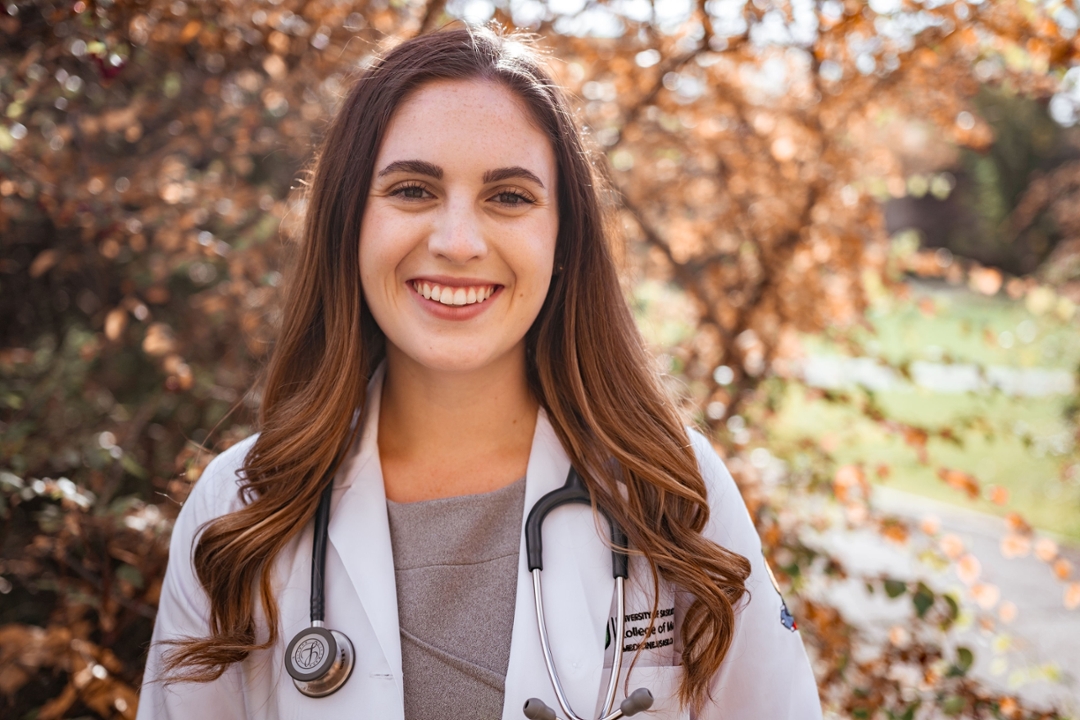
How a summer research project with pewaseskwan turned my curiosity into a passion
When I was presented with the opportunity to do a 2021 Dean’s Summer Research Project with Dr. Alexandra King (MD) and her research team, pewaseskwan – the Indigenous Wellness Research Group, I did not understand the extent of the wonderful experience that was in store for me.
By Sarah SmithResearch always seemed intimidating to me, and when I learned that I would be joining the College of Medicine in the fall of 2020, I did not envision it to be a significant part of my journey in becoming a physician. However, if I am being truthful, I thought I needed to become more involved in research to be considered for a residency position after medical school.
In January 2021, I noticed an available Dean’s project supervised by Dr. King that was related to Sanctum 1.5. Sanctum 1.5 is a 10-bed home in Saskatoon for pregnant or post-natal women who have or are at-risk-of contracting HIV, and their babies. I’d previously learned about Sanctum 1.5 through a friend who had organized a fundraiser for them, and I admired the work they do for the community. So, I decided to apply.
When I first met Lynette Epp, the Research Coordinator for the Sanctum 1.5 Hope Through Strength (HTS) project, within pewaseskwan, in my initial interview, I knew right away that I wanted to be a part of the team. Lynette is a key bridge between the University of Saskatchewan and Sanctum 1.5.
In addition to being incredibly welcoming, Lynette made it clear that if I was brought on as a Dean’s student, I would always be supported by the research team. She emphasized that pewaseskwan was a special team of individuals committed to lifting one another up and celebrating each other’s successes, while conducting Indigenous-based research and centring Truth and Reconciliation. Lynette is just one example of the remarkable individuals I had the privilege of working with this past summer.
The HTS Project aims to develop an evidence base to support Sanctum 1.5 through Indigenous Ways of knowing, being and doing. Guided by Dr. King and Lynette, I conducted conversational interviews with academic, clinical and community members to document key elements of the collaborative processes, outcomes and lessons learned in HTS development. As well, I had the opportunity to learn about Indigenous research methodologies, and concepts like etuaptmumk, or Two-eyed Seeing, that bring together Indigenous and Western ways of knowing, resulting in widened perspectives and understandings.
I am excited to share that the paper I co-wrote alongside Lynette, Dr. King, Dr. Sithokozile Maposa (PhD, NPI, College of Nursing) and Katelyn Roberts (Sanctum 1.5 Executive Director), “A Sacred Undertaking” towards Developing an etuaptmumk (Two-eyed Seeing)-framed Collaborative Research Project and Partnership: The Sanctum 1.5 Hope Through Strength Project,” which details HTS’s collaborative processes has been published in Volume 12 of the Journal of Indigenous HIV Research. I thank everyone at pewaseskwan, particularly Dr. King and Lynette, for their guidance and support throughout the entire experience.
The impact that pewaseskwan has had on me, and especially the HTS team, is beyond words. I wish for every medical student newly embarking on research to have an experience like mine.
I learned more about society, Truth and Reconciliation, and teamwork than I thought possible. At weekly team meetings, I heard firsthand the lived experiences of my coworkers, and I saw the team support one another through the heartache of the graves discovered at residential school sites across Canada.
What began as curiosity turned into passion, as I learned more about HTS and the incredible work they do to support Sanctum 1.5. I wish to make community-based research a larger part of my physician journey, and I can’t wait to see what comes next.
Sarah Smith is a medical student at the USask College of Medicine. Learn more about pewaseskwan and Dean's summer research projects.
